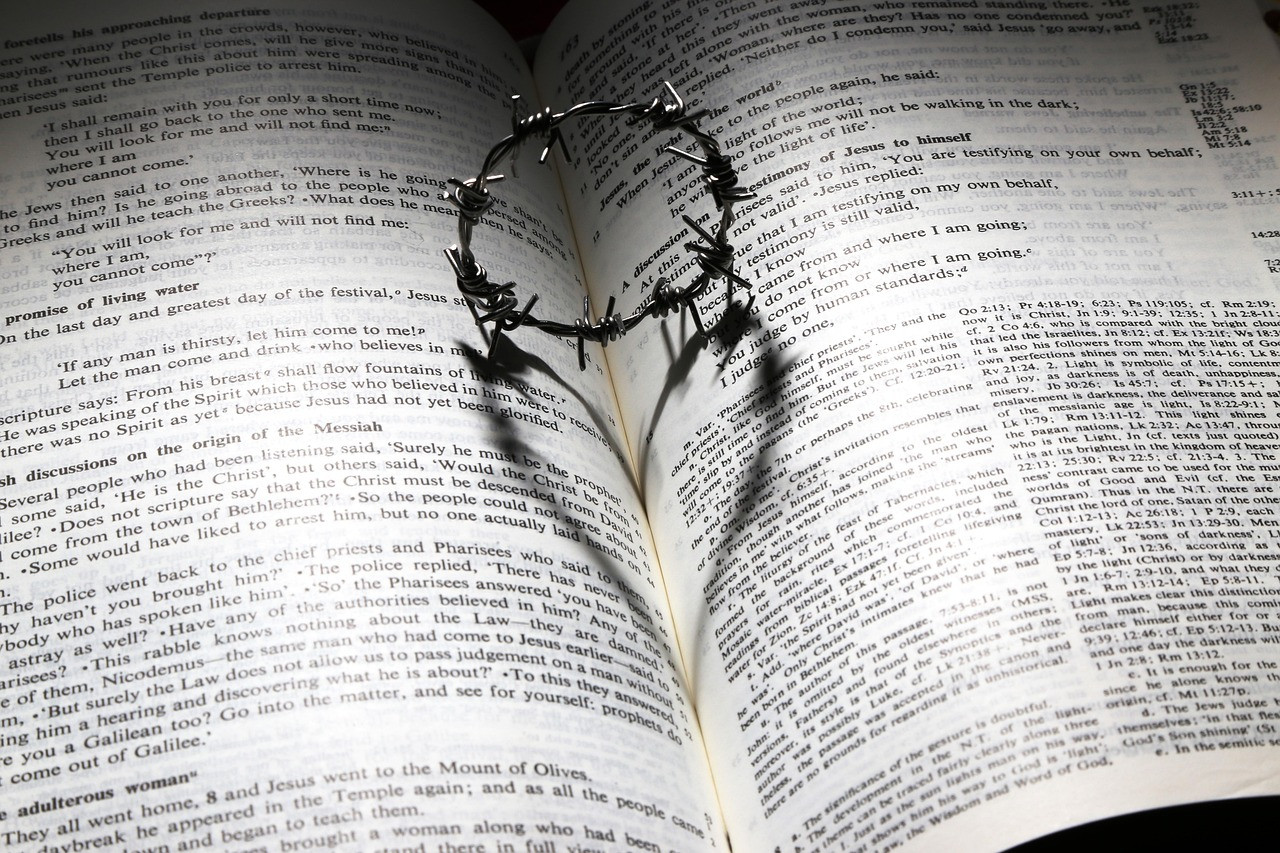If you're here today and you are here because you are eager to hear the ten ways to respond or to act when someone is trying to put their thoughts, feelings and emotions on you.
Let's just first talk about emotions and relationships and how those go together. When we're in a relationship with somebody else, whether that is a romantic relationship, a family relationship, a work relationship, church relationship, just going to the grocery store, there's a relationship between us and the cashier, right? Anytime we're in a relationship with somebody, there is the potential for there to be a desired action or thought or feeling either communicated by one or the other person and sometimes expectations from the other person.
For example, if we're talking about being in a grocery store and having a relationship with a cashier, the cashier may think, I want this person to check out and get their receipt and move on to the next one. They're expecting you, as the person who is going through the checkout line, is going to respond a certain way or act a certain way. Now, if you started tap dancing on their cash register, that would be against the expectation. While that could be something that you can do, it's not really helpful to the relationship because they need to do their job and move the groceries along. The expectation of a customer in that situation is that the customer pays for their groceries and goes home. We're not talking about expectations that are reasonable within the transaction as far as the context of the relationship goes, right.
In a marriage, it's totally understandable for a husband and a wife to have a discussion about going out for food, for instance, oh, I would like to go here. And where would you like to go? Okay, well, I'd like to go there. Oh, actually I'd love to do that for you, but I can't because remember, I have this allergy. Or remember the last time we went there, that waitress really turned me off when she put her finger in the butter or whatever. Right. There are reasonable things that we need to negotiate and say, okay, this isn't going to work for me, but I hear it's going to work for you, but maybe there's something we can both work with that we can agree to.
In relationships, there are both the context of what the expectations are and also just within the normal course of respecting each other and interacting with other people and also in being able to have our preferences and to make requests and expect somebody who cares about us to be able to hear that and try to find a satisfactory negotiation that works for both parties. It's kind of like that analogy of people fighting over an orange and then they figured out that one of them needed the outside zest for flavoring for a cake and the other wanted to make orange juice. There was actually no problem there. So, they each got what they needed. Ultimately that's a good way to look at things. How can we both get our needs met as much as it is healthy, reasonable, helpful and in the context of our relationship? I'm not talking about things like that.
This is when people bring up something that they feel you should be doing because of some situation they've gotten themselves into, or where people try to tell you what side you should take, an action they want you to have, a conversation that they think you should have for someone else, or they basically put their responsibilities onto you. They do it in such a way that there is discomfort or pressure, or somehow without you even knowing how you got into this awkward situation where your feelings, your thoughts and your action choices almost seem difficult to stand up for because, one, it's probably unexpected or two, there's probably a lot of things going through your mind at that point because you're trying to figure out, well, wait a minute: Am I supposed to be nice here because of who this person is? Am I supposed to stand up for myself? Am I supposed to understand where they're coming from? It's confusing because we start to question how we're supposed to respond when someone puts us in a situation that's uncomfortable for us.
10 Ways to Respond When Someone Tries to Put Their Stuff on You
I want to give you ten ways that you can respond or act when someone is trying to put their stuff on you which are easily stackable too. You might need to use a couple of these or keep them in your back pocket for certain types of things so that you have some tools for when the unexpected comes up and someone is imposing on you in some way that you cannot support.
- I Hear You. You can say I hear what you're saying and just resist saying more. It's like, I hear what you're saying, period and don't offend. Don't explain yourself if they're not going to actually listen to you or work with you and they just want you to do something for them that is unreasonable or putting things of pressure on you or things that you don't agree with or sharing how they feel and trying to get you to join in, like to tear somebody else down or something like that, you can simply respond. I hear what you're saying, period. And you can stack this with the next one.
- Excuse Yourself from the Situation. You can say I can hear what you're saying. I hope things go well for you. Sorry, I hope you'll excuse me, but I've got to go, I've got to run. Right, so you can also excuse yourself from situations where you're uncomfortable. Excuse me, I need to run to the restroom right now. I'm sorry, I've got to take another call and then take another call, call somebody else or I apologize, but I can't stay here right now. I'm in the middle of something. The thing you're in the middle of is getting away from this awkward conversation, right? You can just respond, oh, I hear what you're saying is the first one without having to defend or explain yourself.
- Reflect Back. You can just simply reflect back, almost giving a flavor of that's interesting that you see it that way and I hear you, but all I'm going to say is sometimes it doesn't need anything more than that and then just refuse to commit to anything further. Saying something like that's so interesting, and not engaging further or try to give them something that I'm not willing to give. I'm just going to hear them and not commit to anything.
- Just Can't Help Right Now. You can say something like I would love to help you out, but I'm just not going to be able to now. This can also work in that, oh, I'm just not going to be able to help with that. Or I wish I could help you out, but I'm just not going to be able to, as well as I would love to help you out, but I'm just not going to be able to. Those can both be with an unspoken I would love to because I'm a kind person and I have a tendency to people please, but I don't want to do this because I don't really like what you're trying to get me to do. Sometimes you don't have to say the whole thought; they may not be entitled to the whole thing. That can be stuff that, you know, that I would love to help you out from my people pleasing part that you don't tell them that and yet I'm not going to be able to.
- Empathize. If they're trying to put you in a situation where they're going through something rough, and they need you to save them when they are the only ones who can take responsibility for their situation or their actions, you can say something to the effect of that sounds tough. I'm sorry to hear you're going through that. You empathize with that sounds rough for you. I hear that that's hard for you. That sounds tough. And that's it. Again, don't commit, don't take it on. Just that sounds tough.
- Empathy with [Insert Feeling]. Again, you can use empathy, where you consider what they might be feeling or thinking or how the situation is for them and still refuse to take it on as your own. You can say something like I can tell that's difficult for you, for instance, or it sounds like that's really difficult for you, or it sounds like a tough situation. It sounds like that's a lot. I can understand why you would like me to be involved, but I'm not going to be able to, or just, wow, that sounds [insert feeling], and put a period at the end of it and that's it. Just move on. Don't commit to anything.
- Unspoken "Fortunately" for Me. There's kind of an unspoken way that you don't have to explain yourself by saying, but unfortunately that's not something I'm going to be able to get in the middle of. The thing you're not saying is for you, unfortunately for you, I'm not going to be able to get in the middle of that. Fortunately for me, right, but unfortunately, I'd love to help, but I'm not going to be able to do that.
- Gray Rocking. Gray rocking is something that you may have heard in past podcasting or in narcissistic kind of circles. When someone is being a narcissist, as far as their behaviors go, they're trying to cause some emotions in somebody else by putting them down or by trying to make themselves appear higher in some way, like better or more skilled or more connected or whatever. There's this concept called gray rock, which basically means I am just going to be about as interesting to you as a gray rock. I am not going to get engaged with you. I am not going to engage in this discussion with you. I'm not going to fight with you. I'm not going to show you that this has gotten the best of me because that's what you're looking for. I'm not going to sacrifice myself in that way because you're being abusive and so I'm not putting up with it. I become as interesting as a gray rock, and basically that's it. Whatever they're saying, whatever they're trying to get you into, you just ignore it. You just don't say it. You just, again, kind of the non-committal, look away, get up, walk away again, you don't have acknowledge it or you can, and if you do, it should be pretty bland and not really engaging anything. If somebody is trying to say that what, you're too good for me, or why won't you help or anything that's trying to kind bait and goad you into some sort of argument or defensive posture, just use one of these. If they can't get to you, they can't get to you. As a side note: Everything needs to be done with an eye towards safety, though. If someone is in physical danger and you need to play along and even lie to get out of that space to be safe, that is absolutely something that I believe the Lord understands. So, if someone says, promise you're not going to tell somebody this, or I'll insert the threat here. Right, well, oh, I promise I won't tell anybody. Well, I won't tell anybody right now because I'm under threat of whatever the threat is. But you can better believe, buddy, I'm going to be telling somebody once I'm safely out of here. If you have to for safety's sake, you can play the game as you need to be able to get out and into safety. I'm not talking about situations where you are seriously in a physical endangerment situation. These are for things where someone is emotionally trying to put stuff on you that you need to act or feel or behave a certain way or think a certain way because they want you to. That's what these tools are for.
- Change the Subject. Let's say someone calls you and says, hey, I want to tell you about this horrible thing that just happened with your sister, and she's just this awful person who's doing this, and I hope you tell her how awful she's being. You can simply stack these and say, I'm sorry that's hard on you. Wow. Hey, did you see that? I got a new pair of tennis shoes from whatever. Did you know there's a sale? Okay, you can just totally switch topics.
- Cut It Off. Just cut it off by I got to go, or an emoji. Let's say it's by text. You can just do like a thumbs up, like I hear you right or something. Just non-committal again. It's kind of like the excuse me. Oh, excuse me, I've got to do [this]. Well, this is more like, okay, well, I got to whatever insert. But, you know, the unspoken is, I got to get out of here. Okay.
Now, in all of this, am I trying to say, oh, you should bear falsehood and you should lie? No, but I'm saying being as wise as serpents, as gentle as doves, if somebody is trying to put you in a position that hurts you and they are not a healthy, safe person, such that you can actually speak from your needs and your relationship as to what you need from them as well, in a safe and respectful way, you can use these tips. These are for such extreme situations where somebody is forcing you into a situation that is not okay with you and you're trying to figure out how to stay safe and not get roped into things that you don't want to get roped into, but that you might because you're a kind person. Again, safety and survival are primary.
If somebody is going to get upset if you use any of these, those feelings are on them. If you sense that them getting upset would be a physical danger to you, then please be very cautious and wise about whether you would use these techniques or not, because we don't want you to be in further harm. So, as always, this isn't professional counseling. It's just for informational purposes only. I hope you find these helpful. If you want to respond in the Facebook group or by Instagram and tell us which one of these are your favorite or which ones you'd like to start trying to use, or situations where you felt like other people are putting their stuff on you, that you really think these types of tools could help, we'd love to hear from you. I hope you enjoyed what you heard today and that it helped you in some way.
Again, I want to invite you to Mental Health for Christian Women on Instagram and Mental Health for Christian Women on Facebook. Search for those and you can connect and follow, and I'd love to interact with you on those platforms.
I really don't know if you have this problem, but we sometimes get mail delivered to our house that doesn't belong to us. In fact, it may not even be mail that belongs on our street. It may not be mail that belongs anywhere near us and somehow it gets mixed up in the mail that's dropped off at our home. Now, I really appreciate that our mail carrier brings mail to us in all kinds of different weather and all of the stuff they go through. I know it is not an easy job, but what is really frustrating is when something is put into our mailbox that becomes something we need to do something about and it's not ours. It's like I didn't make the mistake of putting it in the wrong mailbox and it's not my mail. Now I have to take time out of my schedule, out of my responsibilities, and what I have to do to make up for something that belongs to somebody else. Both the mistake which goes to the mail carrier and the mail getting to somebody else because it's not mine.
So, that's naturally something that is kind of irritating and frustrating. Now I get to choose whether I'm going to be irritated or frustrated about that or how I think about that or what I do about that. Okay, so if I must confess, if it's junk mail, right, I probably am going to pitch it. If it's something that is junk mail, then I'm just doing the world a favor by not trying to forward that on.
If it is something that looks more valuable, it might get confusing. Do I go hunt down this place that I've never heard of, google it, call somebody, report it to the post office and have the mail person come back and get it? I have options, right? So, I have a choice of something that is just like a flyer that's like, okay, so let's say there's a circular that comes and it has someone else's address on it, but it says to a "resident," that's going in the trash. Now, if something came to me and it looks like it's from something important or that it could be a check, a bill, or it's something medical, well, you can bet I'm going to pay a bit more attention to that.
Even though it's still not mine, even though I didn't make the mistake, and even though I'm not the one that the mail is for, I get to choose what level of involvement I have. So, I can think whenever mail comes that isn't mine what level of response do I want to show up with this? Do I want to allow this to be a minor irritation? Do I want to get really upset about this and tell off the post office? Do I want to tell myself these things happen, and I don't like it, but that's just part of life. That's usually the one I err on, okay?
Now, if they were doing this every day, multiple times a day with multiple people's mail, I'm probably going to call the post office and say, something has to be done about this because I'm wasting too much time doing the job that somebody else isn't doing well to try to get mail to people. So, I'm leveling up my actions based on the frequency and the level of the disturbance and the dysfunction that's going on. So, there's something really wrong if the mail for other people is constantly being given to me.
But if it is just a one time here or there thing, then it's just a fact of life. There's no need to get upset about it, and so I tell myself that, I understand you don't like it, Michelle. It's not your responsibility. Would be great if it didn't happen, but big deal. We're going to roll with it and we're going to be fine.
So, in that, what do I have? I have the ability to choose my thoughts, to choose my feelings, and to choose my actions. Choosing my thoughts, feelings and actions belongs to me. The thoughts, feelings, and actions of the person who made the mistake do not belong to me. That's their stuff. The mail does not belong to me. It belongs to whoever the mail is addressed to. How the person who didn't get their mail or eventually does get their mail, thinks, feels, or acts also does not belong to me. Right? I could go find where this street that I have no idea where it exists is and go drop off the mail, and that person could yell at me for stealing their mail, they could thank me for bringing their mail, or they could just kind of ignore me and just take it from me and no big deal. They get to choose how they think, feel, and act.
So, what do I do then about how they think, feel, and act is I can be irritated if they're rude about it. I can be no big deal. Okay, fine. Glad I brought it to you. Sorry it didn't matter to you anyhow. I can be like, oh, how nice of them to accept that and enjoy it. It volleys back to me as to what I do with the input that comes from this person when I drop off their mail. If I did that, things get tangled when we forget that we are not the other person and that the way someone else thinks, feels, and behaves does not belong to us.
Often as Christian women, we get caught up in feelings of wanting to help and wanting to care. Maybe people telling us something belongs to us that doesn't belong to us as far as what to think, feel, or how to act. It can get confusing because we can have this experience of feeling like we're involved in something that really doesn't involve us. It's kind of like the mail...the mail that ends up at my home that isn't addressed to me and that got there through no fault of my own is not my mail. Now my responsibility is what to do with the stuff that got to me in error, and that's where I can choose what I think and do. I can call the post office, I can search out the owner, or I can ignore it and say probably junk and pitch it. All of those things are once it arrives at my doorstep. The tricky part is that so many times we allow other people's stuff to come to our doorstep and feel like we're responsible for actually managing that stuff that doesn't belong to us.
If I receive an Amazon package to my door of things I never ordered. If I didn't order it, I don't want it, it's not mine. So, I get to say, not mine, take it back or I call Amazon and they say to just keep it anyway. I get to decide if it's valuable and I want to keep it, if I want to pitch it, if I want to donate it, or what I want to do with it because I'm the one responsible for it.
All of this to say that as I give you these two stories, do you ever feel like people's mistakes end up being your responsibility? Like people's feelings or actions end up being something you have to do something about, even though it's not yours. It arrived in your life through no fault of your own, and it's really not yours? Do you find that people put their expectations as to how you should think, feel, or behave onto you? Do you recognize that if and when people do that, you can say not mine, or do you get swept up in the other person's thoughts, feelings and actions about what you should do? It can get pretty complicated if you're not good at sorting through what's your mail or your Amazon packages and somebody else's.
It can be complicated when you don't know what your thoughts and feelings are, your choices for actions, your expectations, your behaviors that you want to do, or what others are trying to get you to do because of their thoughts, feelings, or actions and what they expect of you. It's kind of difficult to sort through this if you're one of these people that gets a lot of other people's stuff and is particularly compassionate, a people-pleaser, or in particular, just wants to make sure you do the right thing, get approval, don't make waves, or don't like people being angry or upset about things. This might be something that you struggle with, and if so, it's understandable and yet it's still not necessarily yours. You're not responsible for other people's mail. You're not responsible for other people's mistakes. You're not responsible to behave a certain way simply because somebody expects that of you or wants that for you because they put that on you. It doesn't make it anymore your mail or your package, and you don't have to follow through on it as if it does.
Where do you need to say, that that just is not mine and I am returning it to sender? You don't get to tell me how to feel about myself or about this situation. You don't get to tell me how I'm going to respond or not. You don't get to tell me how I feel, how I think, or how I'm going to choose to act. And if I disappoint you, that is your disappointment to deal with. That doesn't mean I did anything wrong because I'm staying in my lane.
Romans 14:12 talks about each person needing to give an account to God for our lives. And that's giving an account for how we live our lives. It's not giving an account for how other people think we should live our lives. It's not giving an account for how other people want us to live our lives and whether we lived up to other people's stuff. It is how we lived our lives. What we're responsible for is our thoughts, feelings and actions. We are not responsible for taking on all of the weight of everybody else and their expectations for us.





